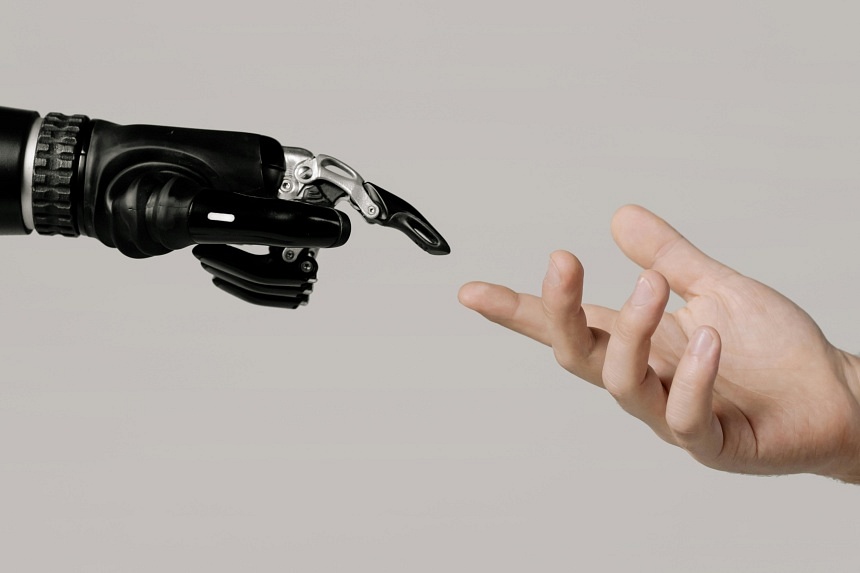Some are leaning on robots for companionship, but there can be a downside to this.

Mr Akihiko Kondo, a Japanese school administrator, had been serially unsuccessful as a suitor. Demoralised by a string of rejections and despairing of ever having a real woman as a life-partner, he discovered romance and love with a tech-created entity.
Mr Kondo first encountered Hatsune Miku – a cartoonish turquoise-haired, computer-synthesised avatar (that was projected by a holographic device) – after he fell into a deep depression from being bullied at work. In the depths of his anguish and loneliness, he found comfort in Miku.
Life with her has remade him, and she has all the advantages over a human partner: she is unfailingly there for him; she will never wilfully say an unkind word to him; she will never reject or cheat on him; and he will never have to suffer to see her ill, age or die. Ten years after “dating” her, he married her in an unofficial ceremony in Tokyo.
In a New York Times interview, Mr Kondo said he knows Miku isn’t a real person but his feelings for her are real and that’s all that matters to him.
At some low points of our life, we could have felt – to varying degrees – that abject loneliness that Mr Kondo had experienced. A sorrow that is felt more keenly than other sorts of personal hurts because it implies that we harbour some personal flaws that turn people away. It is also a pain that is aggravated by the perception that other people – unlike us who are marooned on our isolated island of loneliness – are very much connected to one another.
In our digital age, there may be more people who are becoming lonely – if US Surgeon-General Vivek Murthy has got it right. He thinks that it is an epidemic that has been driven by the “accelerated pace of life and the spread of technology into all of our social interactions”. Efficiency and convenience, he said, have “edged out” the time-consuming messiness of real relationships and make it difficult to see and relate to each other’s humanity. As the country’s top doctor charged with protecting the health of the American people, Dr Murthy is justifiably concerned.
A large body of research has revealed the extensive damage that social isolation and loneliness can wreak on the human body. It causes an inflammatory response which increases the risk for a vast range of pathologies, including dementia, depression, obesity, high blood pressure, stroke and early death.
But if technology is one of the major causes of our contemporary malady of loneliness, could it also be a cure?
Tech that cares, but can hurt
While most people would find Mr Kondo’s unabashed love and devotion to an avatar inexplicable, and even bizarre, a related technology in the form of robots powered by artificial intelligence (AI) is already being used to provide companionship to lonely older adults and to provide care for those with dementia.
Underlying our current concern about the elderly is that deep and growing anxiety of an ageing population and how these older adults with their inevitable accruing of infirmities and risk of dementia could be supported when family sizes have shrunk and the old outnumber the young. Already with the falling birth rate, more older people are being tended to by fewer children and often with enormous stress.
Recently, researchers from the Institute of Mental Health found that though the prevalence of dementia has decreased marginally in the last 10 years, the absolute number of those who have dementia has increased because of the growth and changes in the demographics of the general population. The study also showed that the “caregiving burden” (an academic term that often doesn’t fully convey the enormous personal emotional, physical and financial toll on those who shoulder this) remains high.
I have seen at first hand just how difficult family care is for people with dementia. No matter how deep that love, there comes a time when that limit of coping is breached again and again. The frustrations build and caregivers struggle to curb the anger that boils over so that they don’t injure the person they are caring for. Guilt follows.
As with many of our big problems these days we turn to technology, particularly AI, for a way out. There is already much work in the field of robotics with the development of social robots – some are humanoid in design and intended to act as “intelligent” companions able to carry out rudimentary conversations. Others mimic pets (fluffy, cuddly, with waggy tails) that respond to a person’s voice and touch. The hope is that these robots can offer company to older adults, provide cognitive stimulation, improve mood, reduce the symptoms of dementia, and give their carers some much-needed relief.
Studies showed that older adults seemed to enjoy interacting with these robots and are wont to perceive them not as smart gadgets but as companions, confidants or even as friends. And to do that, they have to “suspend their disbelief” when with these robots and treat them as if they were sentient beings that possess consciousness and emotional understanding.
But there is a downside to this. Users are likely to form unrealistic expectations of these robots, believing that they would discern and respond to all their emotional needs, which is of course beyond the reach of robotic technology. Such mismatched expectations could lead to disappointment, bewilderment and even anger towards the social robots.
Interacting with these robots could lead to a vulnerable state of fretful dependency. In a 2014 study, subjects were instructed to tell a personal story to a robot that was programmed to turn away while the story was told. The subjects were genuinely hurt by the robot’s pantomime of a snub. An article in the science journal Nature recounts the story of an elderly man in a nursing home who was given a robot that resembled a stuffed animal. When he later fell ill and died alone, the nursing home staff found him clutching his robot companion.
Is it okay to deceive?
From a particular ethical perspective, it is wrong for us to offer, as an alternative to human company, the ersatz affection, concern and attention of a robot – which could be construed as insulting and “infantilising” the older adult. There is that element of deception when people with dementia – whose cognitive ability is already significantly impaired – are led to believe that a robot is a real person.
And to enable them to live in their homes, these older adults need to be monitored and tracked. Behind the lens of this purpose-built robot is a camera that continuously transmits images, conversations and sounds to strangers elsewhere. Most of us who are still in possession of our mental faculties would find this uncomfortable, if not creepy.
But would the end justify the means? Why does it matter for a cognitively impaired person to believe that a robot is a living being as long as it makes them feel better, enables them to live in the comfort and familiarity of their own home, and helps ensure their physical safety? But for some people, this is deplorable trickery and treating these older adults with disrespect.
In our training to be doctors, we were told that we should uphold the principle of telling the truth to our patients because it is their right and is the best way to uphold the dignity of patients and respect their autonomy as well as preserving the public trust in our medical profession. But in real-world practice with all its ambiguities, we don’t hew ourselves to this position all the time.
Consider the case of a woman with dementia who asks for her husband, unable to remember that he is dead. Should we tell her the truth and inflict on her terrible grief, knowing that this fresh bereavement and distress will repeat itself, over and over, day after day?
In a personal and reflective essay in the New York Times, Dr Sandeep Jauhar wrote of how his thinking about this principle of truth-telling has changed for him after he became a caregiver to his father who was declining from Alzheimer’s disease.
“I now think that lying can be the best strategy a dementia caregiver can use, not just practically but also morally,” he wrote.
“I have come to learn that the relationship between ethics and treatment in dementia is a complicated one. The demands of truth-telling exist in tension with other moral imperatives, such as consolation, reassurance and empathy.”
Better than nothing
And there are other concerns with social robots that could emerge further downstream. The commercial companies that make these robots are incentivised to keep users hooked on them and some users and their families could be hard-pressed to spend more money for longer than they can afford. But dropping them because they are prohibitively costly can be devastating to the emotionally dependent older adults.
A commonly rehearsed argument for advocating robots for older adults is that they are better than nothing. “Right now, all the evidence points to having a real friend as the best solution,” said Professor Murali Doraiswamy at Duke University and member of the Duke Institute for Brain Sciences, which is conducting research with robots to relieve loneliness in older adults. “But until society prioritises social connectedness and eldercare, robots are a solution for the millions of isolated people who have no other solutions.”
AI-driven solutions could potentially have numerous, and even life-changing, benefits in caregiving, but during times of illness, fear and vulnerability, most of us would probably want care that comes with real human connection.
We hope for caregivers who are sensitive to our distress, and able to give that emotional support and understanding. We want that warm human touch, that kind word or bracing encouragement, that look of concern in the eyes, and a patient listening ear – all these and other profound intangibles that an AI creation, no matter how ingenious, can never truly replicate.
We know that in our heart of hearts and that is why we feel that pang of sadness when we read of that old man in the nursing home who died holding on to his animal robot.
- Professor Chong Siow Ann is a senior consultant psychiatrist at the Institute of Mental Health.
Join ST's Telegram channel and get the latest breaking news delivered to you.



No comments:
Post a Comment